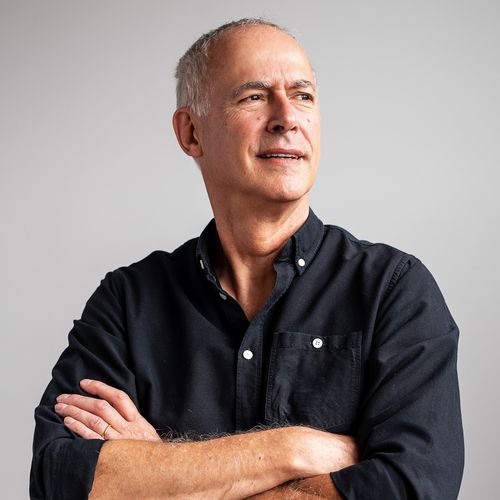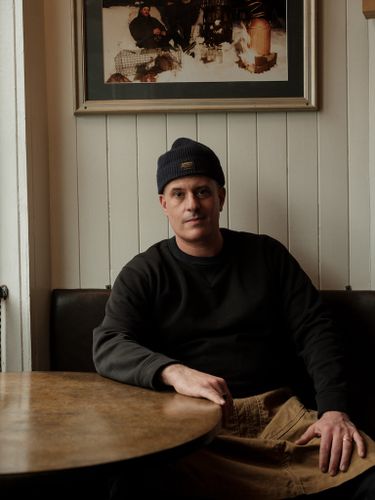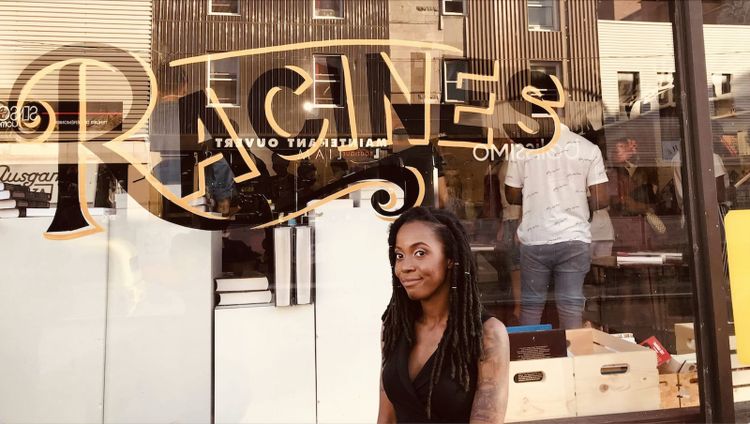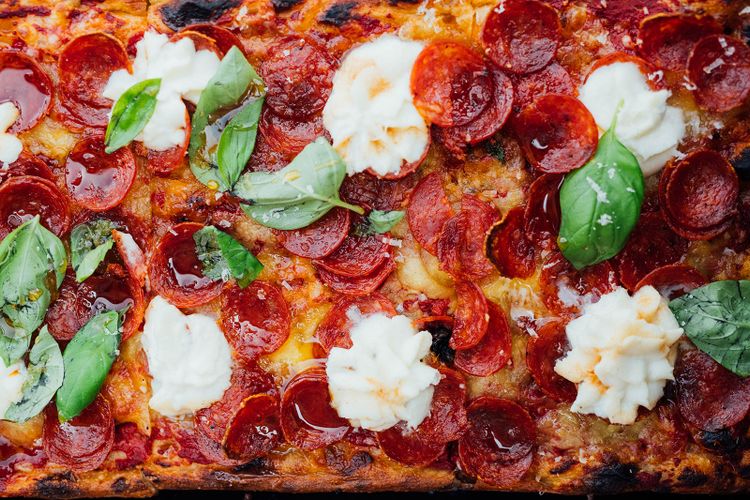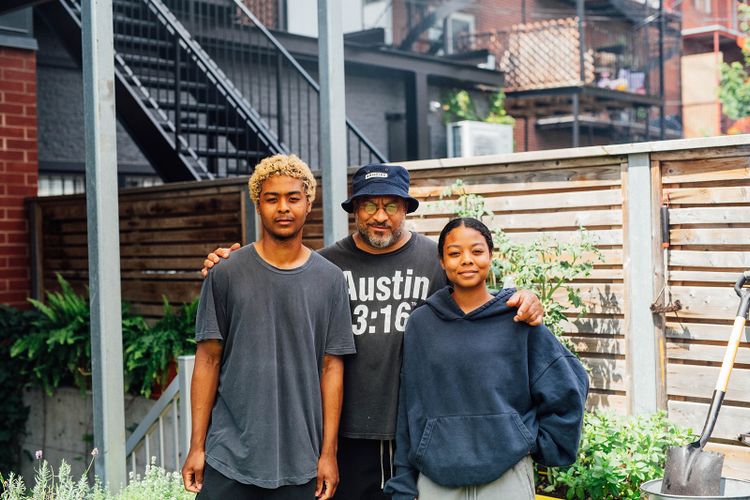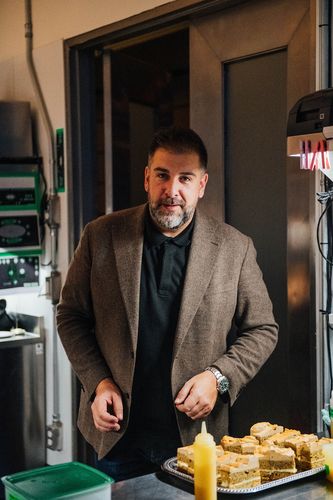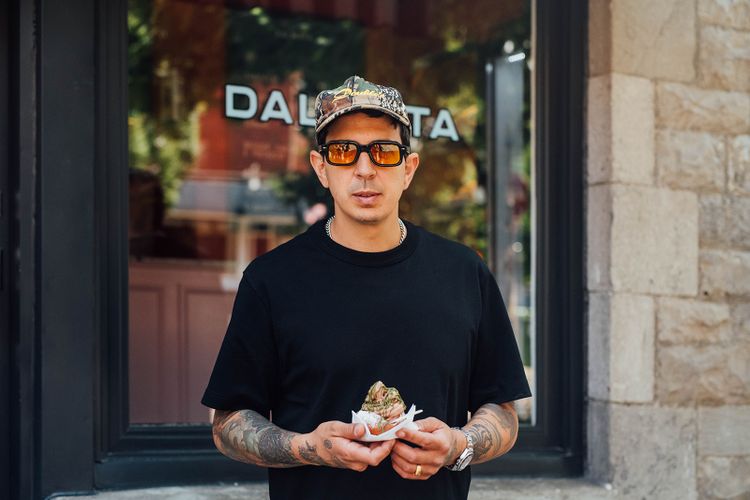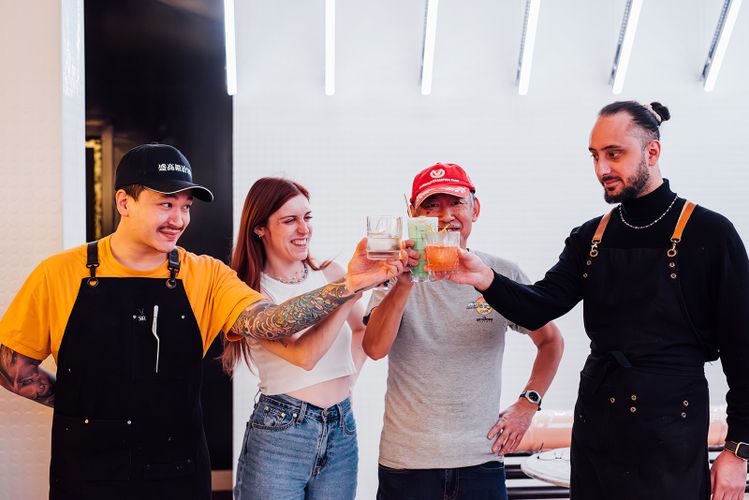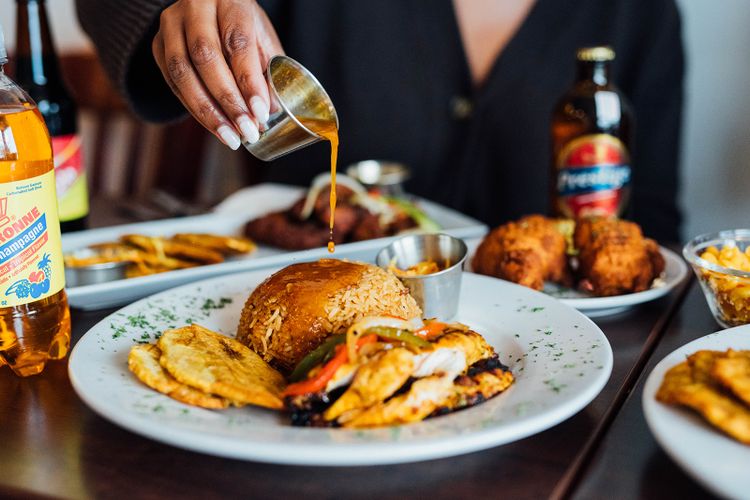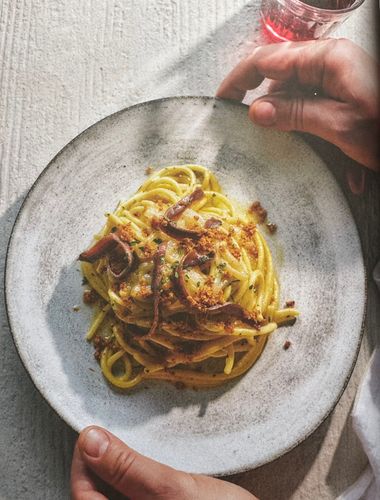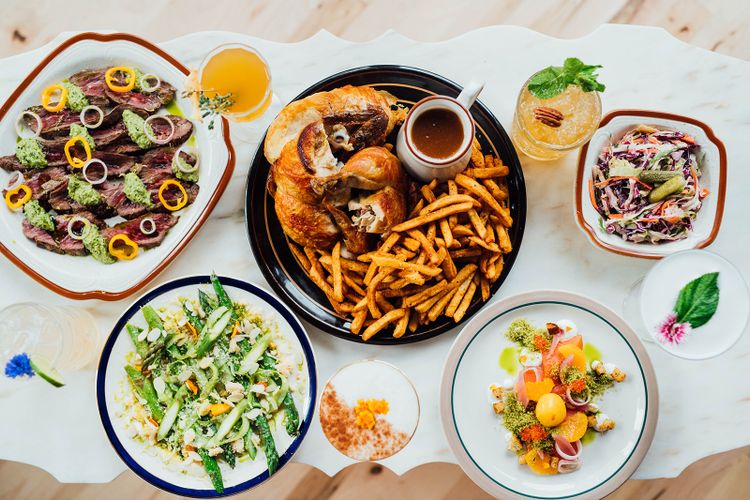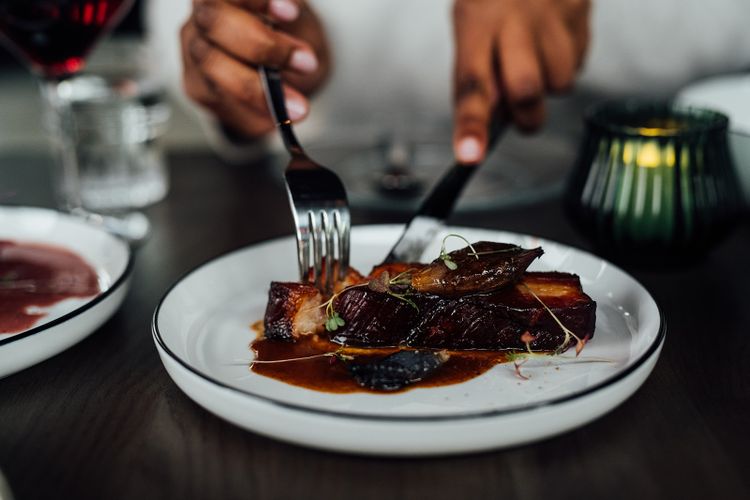Cheryl Johnson: A key player in the “reinvention” of Montreal’s gastronomy

Cheryl Johnson: “I couldn’t have a life without Cheryl. And Cheryl couldn’t have a life without me. We’ve been working together for 25 years… It was an instant friendship. Friendship is nurturing and magical. Our relationship has evolved and we cultivate it every day. Cheryl is more than my best friend, she is my chosen sister.” – Charles-Antoine Crête.
Cheryl Johnson is the chef extraordinaire and co-owner of Montreal Plaza and Juliette Plaza.The Filipina-American woman may be more discreet in the public eye than her partner and inseparable friend Charles-Antoine Crête, but she is the one who runs their restaurants and keeps their projects running smoothly.
Cheryl Johnson’s beginnings
“I come from an Asian background, I grew up in a family that was surrounded, and almost obsessed with food; we would eat breakfast and talk about the next meal. (Laughs) Food was always at the center of our lives and I started cooking at a young age. When I was little, I would wake up really early on the weekends to make huge feasts for my family… That was how I played.”
Cheryl Johnson was born in the Philippines and stayed there until she was 12. Her father was a military contractor, so her family traveled a lot. Early on, Cheryl was immersed in the different and interesting cuisines of the places she lived: Japan, Hawaii, and the states of Texas and Georgia.
Eventually she landed in the small town of Encinitas, just outside of San Diego. “I first decided to study to be an engineer in college, and I hated it.” While in college, barely 20 years old and with a complete lack of experience in the field, Cheryl applied for a job at a restaurant called Tomiko. “I completely lied about my experience.” (Laughs) Turns out they needed someone for the front of house, and Cheryl got her first restaurant job… in service!
Tomiko
“The owner was a 70-year-old Taiwanese woman who ran the restaurant and dining room. When someone didn’t show up, she would be the one in high heels filling in for the busboy, waiter, dishwasher, or whatever. She rocked.” After several months on the job, the owner’s daughter asked Cheryl what she would be doing if she wasn’t in engineering. Cheryl answered — without a doubt — in the kitchen. Why wasn’t she working in the kitchen at this restaurant? “And it struck me: I didn’t have to be a server, I could work in the kitchen.”
The owner, however, would have none of it, since Cheryl had no experience. “Like all Japanese restaurants at the time in the United States, the chefs were all Japanese men and the dishwashers were Mexican men.” Cheryl offered to work as a dishwasher for free, and she became the only young woman in the position. At first, everyone laughed at her. Then the people in the kitchen needed help with this and that, and they quickly realized that Cheryl was talented and interested. After a while, the owner told her, “Enough with the dishwashing, we’re training you to cook.”
Soon, the Japanese chefs took her under their wings and showed her the importance of ingredients and tools in the kitchen. “They taught me how to do everything they did.”
Dropping out to pursue cooking
After a few months, Cheryl Johnson became the chef de cuisine. “And then I realized that this wasn’t a part-time job, but a career I wanted to make. I told my dad I was dropping out of engineering school to become a chef. I was so scared. He really didn’t take it well at first, but eventually he too had dreamed of being a chef, so he ended up encouraging me.”
The owner’s daughter slipped Cheryl a note about the CIA — the highly regarded Culinary Institute of America located in New York City. “I told her, ‘There’s no way I can afford this school’ (it was about $30,000 at the time (!)” She then explained that there were scholarships, and that there were ways to get there. “Without this family, I would never be where I am today. Because of her, I applied to the Institute and was accepted.”
Culinary Institute of America for Cheryl Johnson
The Culinary Institute of America program is spread over two years. “It’s really an amazing school. It’s very difficult to get into, but it’s a great school. I think the school is always as good as the students are, though — you get what you give. How do you work? What emphasis do you put on your work? Where do you do your internships? That’s what makes the difference. What I loved and quickly learned from this school is that they teach you that if you’re sick, if there’s a snowstorm, no matter how hard it is, you have to go to class. And that’s the best lesson about having your own restaurant; there’s no excuse for not being there. You have to be there all the time, and they taught me the reality of the business very well.”
During the two years of study, every student must complete an internship. “To study abroad, you had to prove that you were 100 percent ‘fluent’ in the language of the country. And that’s when I thought… Hello Canada! (Laughs) and I stumbled upon Montreal and a little restaurant called Toqué! All the interns were saying the same things: the food is amazing, the internship is hands on, and you’re treated like a real human being.”
To this day, Cheryl applies the same principle in her businesses. “Interns, you have to guide them, show them, let them touch; we create and build the cooks of the future.”
Cheryl Johnson at Toqué!
Cheryl told her teacher about her desire to go to Montreal and he encouraged her to send an application. “So I went for it! I called my sister and aunt who were living in Philadelphia at the time and convinced them to come with me to Montreal. In Asian families, there is a strong belief that it takes a village to raise a child…” (Laughs).
Upon arriving in Montreal, Cheryl immediately fell in love with the city. Cheryl was extremely nervous. “The food was amazing, without being gourmet. I just felt good, like I was at home.” At the end of the meal, she went to the kitchen and saw that everyone was relaxed, having a beer, seeming to be enjoying themselves. “Normand came up to me, I gave him my resume, and as I left the restaurant, I knew that’s where I wanted to come to work.”
Upon returning to New York, Cheryl announced that she wanted to go to Montreal for her internship, but was quickly told that it would be impossible. “I went back to the teacher who urged me to apply and he said ‘F— them! Find a way, for sure there is a way. And I found a loophole where, if I did an exchange program, I could pay and they would give us a visa. I said hello Canada again!” (Laughs)
“Oupelai”
Cheryl returned to the restaurant for her first tryout, where she met her future best friend and partner Charles-Antoine Crête. “He convinced me that people in Quebec say ‘Oupelai’ when they say hello to each other and I said it all day. (Laughs) We really hit it off quickly. As soon as I started working with him, he said, ‘If I ever open a restaurant, would you work with me?’ “
Cheryl was startled, but began her setup. “I f-ing loved my experience, loved my day, loved the people.” Yet her internship spot depended on feedback from the cooks and the other CIA applicant. “It stressed me out so much that I gave it another day to put all the odds on my side. And I ended up getting the internship. I loved that internship.”
Upon returning to school, Cheryl maintained a great relationship with the Toqué! When she finished school in her mid-twenties, Le Toqué!’s head chef left and Cheryl was hired as an entremetier. Without much experience, Cheryl became Charles-Antoine’s sous-chef, and the fusion duo began to build. “With Charles-Antoine, Le Toqué! was at a turning point. It was great and I was learning a lot. Honestly, Charles ran Le Toqué! as if it were our restaurant. We cleaned up the staff and for two years it was an extraordinary era of Le Toqué! We worked with Amine from Plaza, Dave from Bar Saint-Denis and many others. This experience made me who I am today. I learned how to manage people — because in the kitchen, it’s 40% cooking and 60% people — and I learned how to work as a team. The years that followed were the most important of my life, for my relationships and for my learning.” Cheryl would go on to stay at Toqué! for nine years!
Cheryl Johnson’s Montreal Plaza
From Thailand, Cheryl helped Charles create Majestique and when she returned to Montreal, he was opening the bar and doing a lot of television. That’s when they started planning the Montreal Plaza. “At first, we wanted a 35-seater…” (Laughs). One day, to help a friend, they went to visit a space on the Plaza Saint-Hubert. “And we fell in love with the place. We said to our friend, ‘Do you want us to help you or do you want to sell it?’ He sold it to us.”
A Journey of Learning with Foodchain
“Jean-François Saine had helped out a bit with Toqué! on some marketing in the past. He wanted to know how we could transform the fast food industry into something healthy. He was planning Foodchain and we were helping him as consultants. Eventually we knew the project so well that we became the leaders. We started with the idea of salads and finally with the vegetables, Charles had the idea to make eight vegetable dishes. We were trying to think in terms of efficiency and yield. The project helped us improve the Plaza and the Plaza helped us improve Foodchain. I’m not much of a salad person, but I have to admit that when I ate ours, I thought, F—, this shit is good!” Foodchain is another success story: the original establishment offers a concise menu of fresh, local vegetable dishes to people downtown.
On November 14, 2019, Cheryl, along with Charles-Antoine and their team, opened a new Foodchain and two new Plaza locations (a small Plaza and Montreal Plaza Deli). “Once again, with the Time Out Market, we wanted to explore the next step—thinking beyond our usual approach, creating something new, a Foodchain 2.0 and a Plaza 2.0. We approached it as a laboratory to understand what it means to operate in a food hall and to think outside the box. It’s exciting to do something completely different while maintaining the same quality of ingredients and philosophy, but in a new environment…”
In the end, the duo decided to close Foodchain as well as both spaces in the Time Out Market.
Juliette Plaza
Written by Élise Tastet
